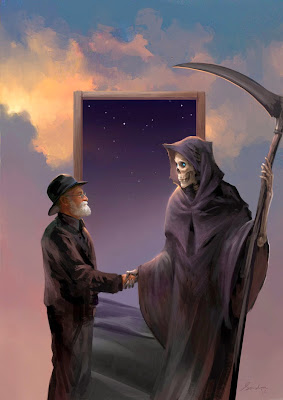When I was very little, I learnt how to read silently. Even
got in trouble for it. See, we didn't have much of a library at school, but we
had a "library period" - A 45-minute stretch of time where a group of
fidgety 8-year-olds were expected to sit still and mumble from whichever book
had been handed to them. Not because they loved it, but because "Library
sir" would whack them between the shoulder blades with a freshly plucked switch
if they didn’t. This wasn't meant to foster a love for reading, it was meant to
keep us relatively quiet and scared; Which would describe a LOT of our classes,
now that I think about it. But I digress.
My mother taught me how to read silently. It was the mark of culture, she said, to not move his lips when he read. So as I sat on the
scratched, brown bench, hunched over my Blyton with no cover and ripped pages,
lips unmoving, it must have seemed like I was staring, rather than reading. a
classmate noticed, and keenly felt the unfairness of it all – him having to
slog through books while I just sat there, in bliss, not absorbing ANY of the
painful words into my brain. A teacher was summoned. The complaint was
succinct. "He isn't reading. His lips aren't moving". I got away with
it because, let's face it, as the only one in my class who snuck into the
library rather than the football field during recess, it wasn't really
believable that I wouldn't be reading. But I have always felt faintly smug
about the incident, long after I had any right to be of such childish gotchas.
And then, I discovered, I was wrong. My mother was wrong.
One day, I discovered the joys of reading out loud.
I blame Pratchett. The quality of his prose made me realize that
it wasn’t enough to just read the words, that I wouldn’t be satisfied if I
couldn’t feel them in a tangible manner. I needed to experience them through as
many senses as I could, not just one. Hearing them, and yes, even speaking them
out loud, feeling my lips and tongue and teeth perform the intricate symphony
of storytelling the author had left there for me was a more complete experience,
enveloping me and drawing me deeper into the world that had been weaved into my
soul.
There is something solid about words. They aren’t simply
vibrations in the air, or pixels on the screen, or curvy little blobs of ink on
paper. They live, they breathe, and if I wanted them properly, I had to savour
them. To say them out loud, to chew them, to bite, gnaw
I don’t advocate reading whole books this way, of course. Not every word, not every passage, not every page or chapter is there to envelope you in. Some of them are there just to take you from the really good bits, and if you are lucky, the good bits are close by. But when you get to them, you will know. You will feel the familiar pinpricks of your hair standing on their end all along your arm, you will feel that tiny tingle in the back of your neck that tells you something special is going on. Your lips will part, your breath will pause, and somewhere in the deepest recesses of your animal brain, synapses will crackle with a little more fire. And when that happens, it doesn’t matter whether you are tucked into your bed with a book and a flashlight, or if you are in the metro, hanging onto the strap with one hand while you flick across your smartphones with the other, verbalize. Read it out loud. Trust me, eating your words never felt so damn good.
















